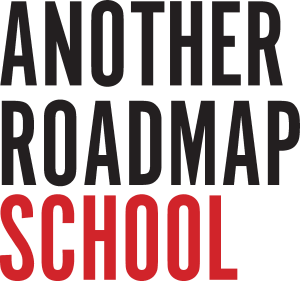Members of the Vienna Working Group:
KARIN SCHNEIDER
was born in Vienna, always lived and worked at this place, studied history and was part of the establishment of critical formats of arts gallery education in Vienna from the early 1990s on; parallel and even before she dedicated some of her years to full-time activism in different feminist and political contexts in Vienna, she was part of the artist collectives “permanent breakfast” and “rites institute” and co-curated the show “Overlapping Voices. Israeli and Palestinian artists” in Essl museum (with Tal Adler, Friedemann Derschmidt, Amal Murkus); in the context of arts based research projects at the Academy of Fine Arts, Vienna she where she was part of a team (with Tal Adler, Friedemann Derschmidt, Anna Szöke, Niko Wahl) developing new approaches towards the politics of history and memory in Austria, addressing the denied Nazi past, anti-Semitic histories and colonial museum politics in Austria.
www.permanentbreakfast.org
www.traces.polimi.it/2016/10/06/research-on-educational-approaches
ANDREA HUBIN
was born in Vienna, almost always lived and worked there, studied art history at the University of Vienna and Frankfurt/Main, and modern theatre dance at the Hogeschool voor de Kunsten Amsterdam. She has been experimenting with new ways of museum communication and collective learning formats e.g. at Generali foundation, documenta XII, Berlin Biennale 5, museum for folklife and folk art Vienna and Kunsthalle Wien. Andrea was teacher and administrator at the “Kunstschule Wien” (independent art school Vienna), is currently responsible for the Kunsthalle Wien Community College as research associate at the dramaturgy department and has been researching and publishing on Viennese 4
avant-gardes of the 1920s and the 1950s mainly in the context of editing two catalogue raisonnés for the collection of Dieter and Gertraud Bogner at the mumok – museum of modern art, Vienna.
www.kunsthallewien.at/#/en/education/community-college
Link to Karin and Andrea’s collaborative thinking, key note lecture “The Artist as Educator”, Perspectives on Arts Education Symposium 2015, University of Applied Arts, Vienna:
www.youtube.com/watch?v=37_J8bDCs4I
CARLA BOBADILLA
is an artist and photographer from Chile (MFA from the University of Playa Ancha, Valparaíso) who has been working in the field of communication and education with and through the arts for many years in Austria and Chile, she currently holds a senior teaching position at the Institute for Education in the Arts at the Academy of Fine Arts, Vienna, is board member of the Austrian Artists’ Association, IG Bildende Kunst and is co-editor of the volume “Sketches of Migration, Postcolonial Enmeshments, Antiracist Construction” (2010, Löckner Verlag, Vienna). The focus in her work has been developing several participatory projects of critical, postcolonial thinking in museums and the public space e.g. recently “The Walk as a Collective Method of Unleaning”: http://www.whenwherewh.at/event/walk-collective-method-unlearning
2016/17 she co-developed art education projects with refugees and students of the University of Applied Arts, Vienna.
www.mak.at/vermittlung/vermittlungsprojekte/vermittlungsprojekt_detail?article_id=1506993141953
www.carlabobadilla.at/
Being an important part of the current critical arts educators scene in Vienna, Carla got to learn about its traditions also from an “outsider” perspective, while Karin was an active part of some of its founding moments in the early 1990s and considers some of the main figures of this scene as her teachers; Andrea knows the history of this context not only from her various practices inside art space institutions but also through her intense research on Viennese avant-garde movements from an art historian’s perspective.
These different subject positions and backgrounds enabled us, the intertwining histories team of the Viennese working group, to address questions about our own history and/or the specific Viennese history of our professional field, from different perspectives. This was not always an easy process and it contained meandering, storytelling, listening, confusion, inspiration, web and archive searching, misunderstandings, walking tours, un/learning processes, photograph-sessions on palm trees, exhibition visits, teaching experiences, childhood stories exchange, close readings of sources and theoretical texts and the exchanges with other colleagues in the field.
